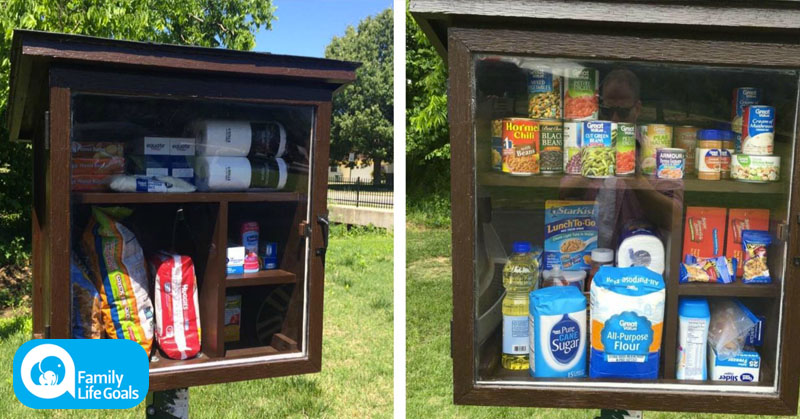Many people across the U.S. can’t afford to keep their pantries stocked at home. However, a new movement which originated Fayetteville, Arkansas, and is now spreading across the country, aims to help those in need by stocking “street pantries” full of necessary household items.
The project, dubbed “The Little Free Pantry”, was originally started by Fayetteville resident Jessica McClard. An avid reader, Jessica was inspired by the concept of “Little Free Libraries”, where people can take out books at no charge and also leave books that they no longer wanted.
McClard thought that this type of project was one that greatly enhanced the quality of life for her community and neighbors, and she decided that she would start one of her own. However, instead of exchanging books, she decided to create one for necessary household items such as food, hygiene products, baby diapers and more. And thus, The Little Free Pantry was born!
The entire project started with just one single pantry.
“My feeling is little free structures both create space for neighborliness and address social problems,” McClard told the Huffington Post. “Books nourish. Food nourishes.”
McClard initially received a micro-grant of $250 from Thrivent Financial which was meant to be used for a community service project. She decided to use the money to fund the building of her first small pantry.
The box was first mounted early in May in front of Good Shepherd Lutheran Church in Fayetteville. There it experienced a lot of use and a very high turnover rate for items such as non-perishable food items, toiletries and paper goods. It is still being used by the community months after it was first placed there.
Although the movement originally started with one mailbox, it has inspired others to do the same in their community. One example is the Blessing Box, a street pantry placed outside of the Crystal Rock Cathedral in Ardmore, Oklahoma.
The Little Free Pantry is a grassroots program meant to help those in need and increase positivity within the community. People who are in need of household supplies and food can take them, while others can leave them. To learn more about the project, you can visit their Facebook page here.

